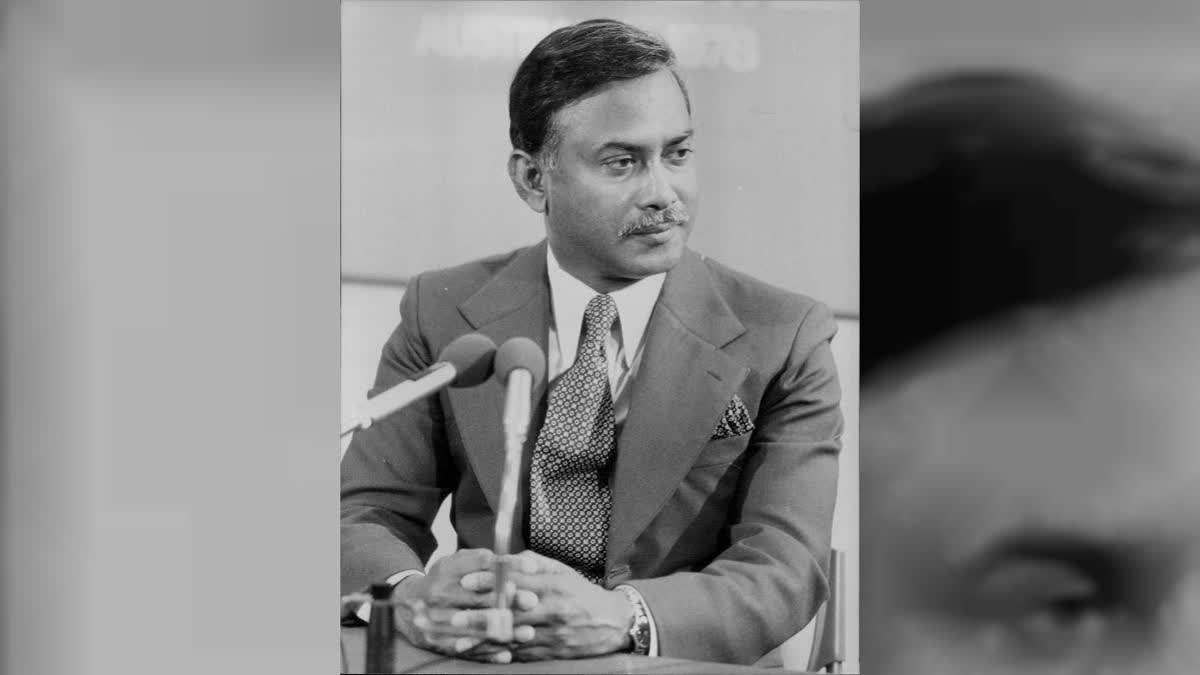New Delhi: In a significant move that reignites historical debates, Bangladesh has decided that new textbooks for primary and secondary students will acknowledge late President Ziaur Rahman as the declarer of the country's independence in 1971.
"The new textbooks for the 2025 academic year will state that on March 26, 1971, Ziaur Rahman declared the independence of Bangladesh, and on March 27, he made another declaration of independence on behalf of Bangabandhu (Sheikh Mujibur Rahman),” a report in the Daily Star news website quoted AKM Reazul Hassan, chairman of the National Curriculum and Textbook Board, as saying on Wednesday.
This decision reflects a shift in historical interpretation, revisiting the contested narratives of Bangladesh’s Liberation War. The announcement underscores the complexity of the nation's struggle for independence, where figures like Sheikh Mujibur Rahman and Ziaur Rahman played pivotal but distinct roles in the historic events of 1971.
The decision to change the narrative about the declarer of Bangladesh’s independence comes in the wake of the ouster of Awami League’s Sheikh Hasina as Prime Minister in August last year.
The question of who first declared the independence of Bangladesh in 1971 remains one of the most debated and politically sensitive topics in the country’s history. This issue is rooted in the tumultuous events of the Liberation War and the roles played by key figures, including Sheikh Mujibur Rahman and Ziaur Rahman. The narrative has evolved over time, influenced by shifting political climates and interpretations.
According to the Daily Star report, writer and researcher Rakhal Raha, who was involved in the process of making changes in the textbooks, said they tried to free the textbooks from "exaggerated, imposed history".
"Those who revised the textbooks found that it wasn't fact-based information that Sheikh Mujibur Rahman sent the wireless message (declaring independence) while being arrested by the Pakistani army, and so they decided to remove it," Raha was quoted as saying.
Supporters of the Awami League believe that Sheikh Mujibur Rahman had made the announcement and that Ziaur Rahman, who was an army major and later a sector commander of the Liberation War, merely read out the declaration upon Mujib's instructions. However, supporters of BNP believe their party founder and also former President of the country Ziaur Rahman had made the declaration.
In the textbooks of classes one to 10, the information on who made the declaration of independence was changed according to the government in power. When the Awami League was in power from 1996 to 2001, the textbooks stated that Sheikh Mujibur Rahman made the declaration of independence and Ziaur Rahman read out the announcement. On the other hand, when the BNP was in power from 2001 to 2006, it was stated that Ziaur Rahman had made the declaration.
Ziaur Rahman served as the sixth President of Bangladesh from 1977 until his assassination in 1981. One of the leading figures of country’s independence war, he broadcast the Bangladeshi declaration of independence in March 1971 from Chittagong at the onset of the Liberation War. He was the founder of the BNP. He previously served as the third chief of army staff from 1975 to 1978 with a minor break.
On March 27, 1971, Major Ziaur Rahman, then a Bengali officer of the Pakistan Army, made a radio broadcast from Kalurghat in Chittagong. In the broadcast, Zia declared the independence of Bangladesh on behalf of Sheikh Mujibur Rahman.
“This is Swadhin Bangla Betar Kendra. I, Major Ziaur Rahman, at the directive of Bangabandhu Sheikh Mujibur Rahman, hereby declare that the independent People's Republic of Bangladesh has been established… In the name of Sheikh Mujibur Rahman, I call upon all Bangalees to rise against the attack by the West Pakistan army. We shall fight to the last to free our motherland. By the grace of Allah, victory would be ours. Joy Bangla,” Ziaur Rahman had said.
However, those who oppose the theory of Ziaur Rahman being the first declarer of Bangladesh’s independence, say that before his arrest on March 25, 1971, Sheikh Mujibur Rahman reportedly made a declaration of independence.
According to some accounts, he issued a handwritten message calling on the people of then East Pakistan to resist the Pakistani military and fight for independence. This message was reportedly circulated by members of the Awami League and broadcast locally.
The frequent change of historical narratives has been a challenge for Bangladeshi students.
"As a child, I was confused," Bangladeshi academic and political observer Sharin Shajahan Naomi told ETV Bharat. "But then, I realised that to make a politically inclusive society, we need to start with history. This should include honest acknowledgement of everyone's contribution to the Liberation War."
Naomi said that, apart from Sheikh Mujibur Rahman and Ziaur Rahman, very few people know about the contributions of four other leaders, popularly known as "char jatiyo neta" – Sayyed Nazrul Islam, Tazuddin Ahmed, Mansur Ali, AHM Kamruzaman. She also stated that very little information is given in the textbooks about the role played by the Indian Army in Bangladesh's Liberation War.
"There is very little information about the sector commanders of the Indian Army and the Bangladesh defence forces," Naomi said. "The textbooks also don't tell much about the role played by then Indian Prime Minister Indira Gandhi."
She said that the new generation is losing interest in the history of the Bangladesh Liberation War because of the changing political narratives. "The decision on the content of the textbooks should have been based on a national-level dialogue," Naomi said.



